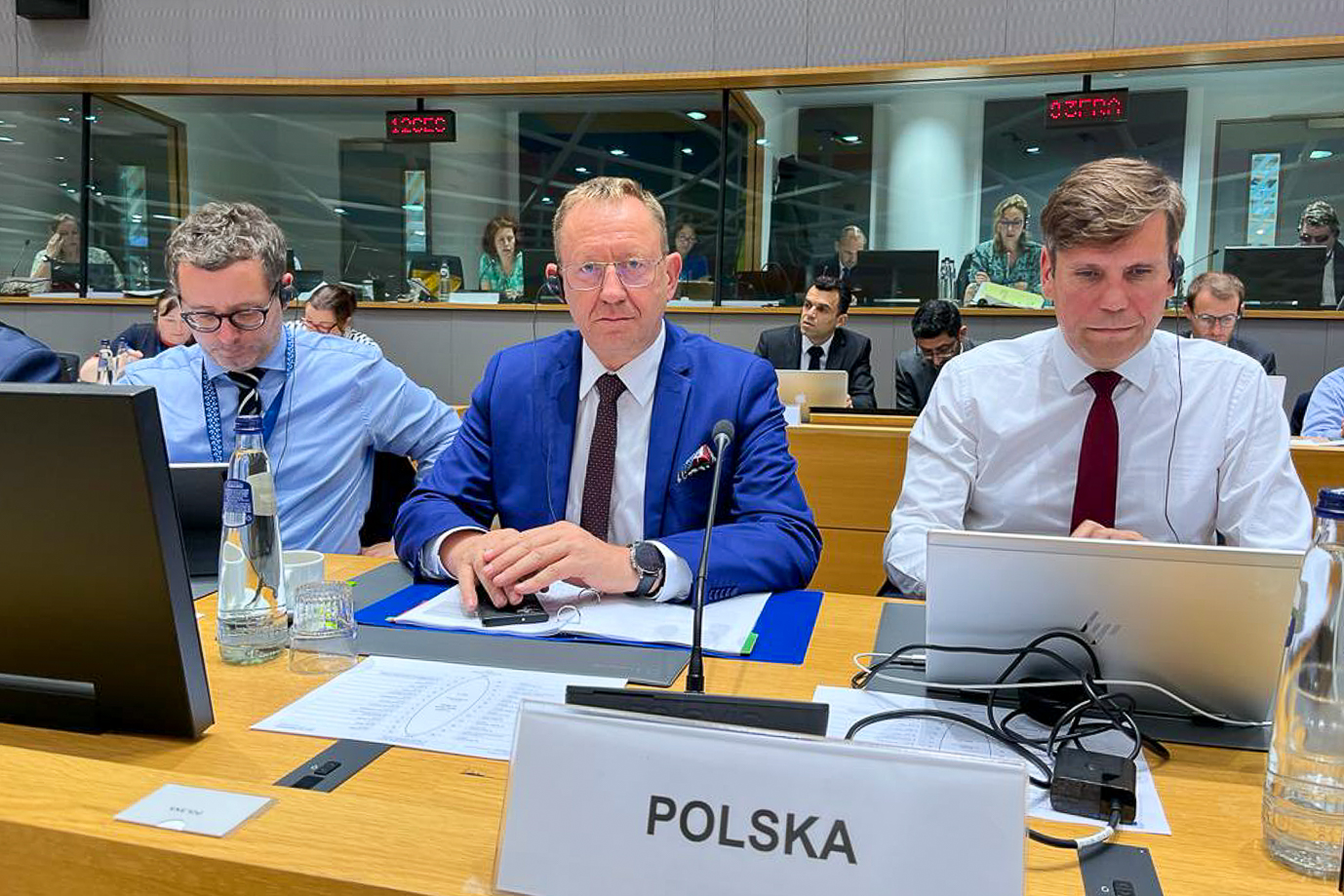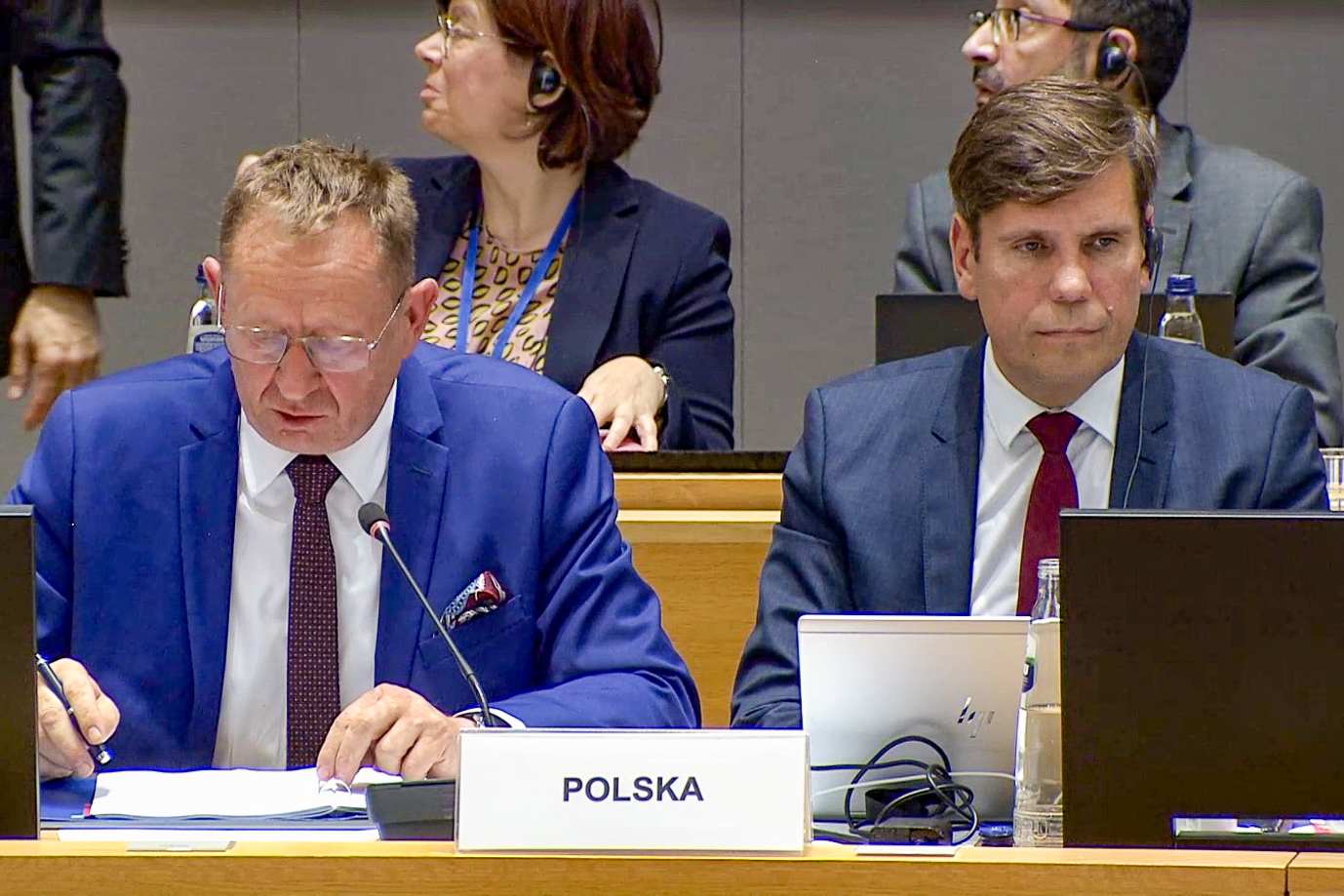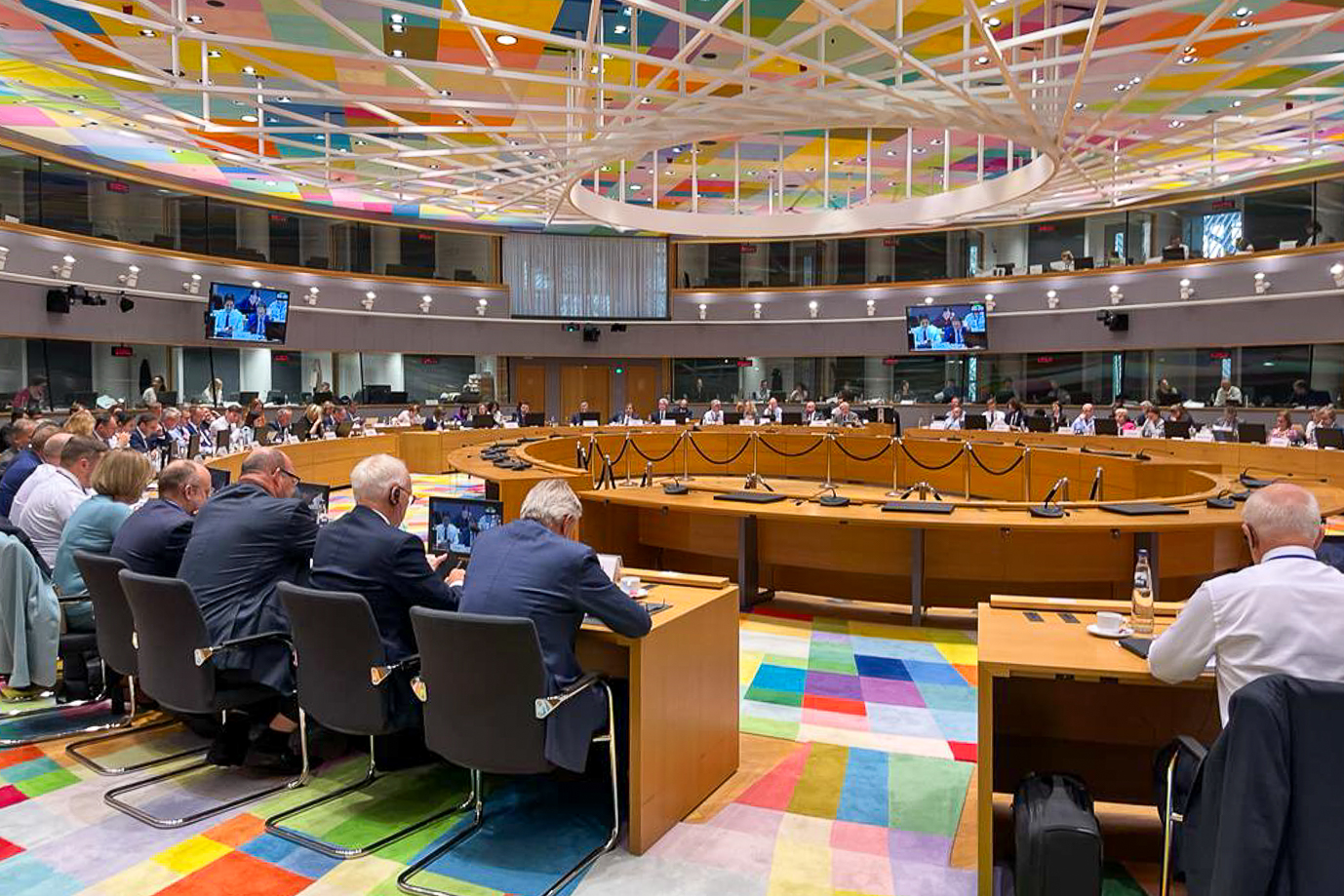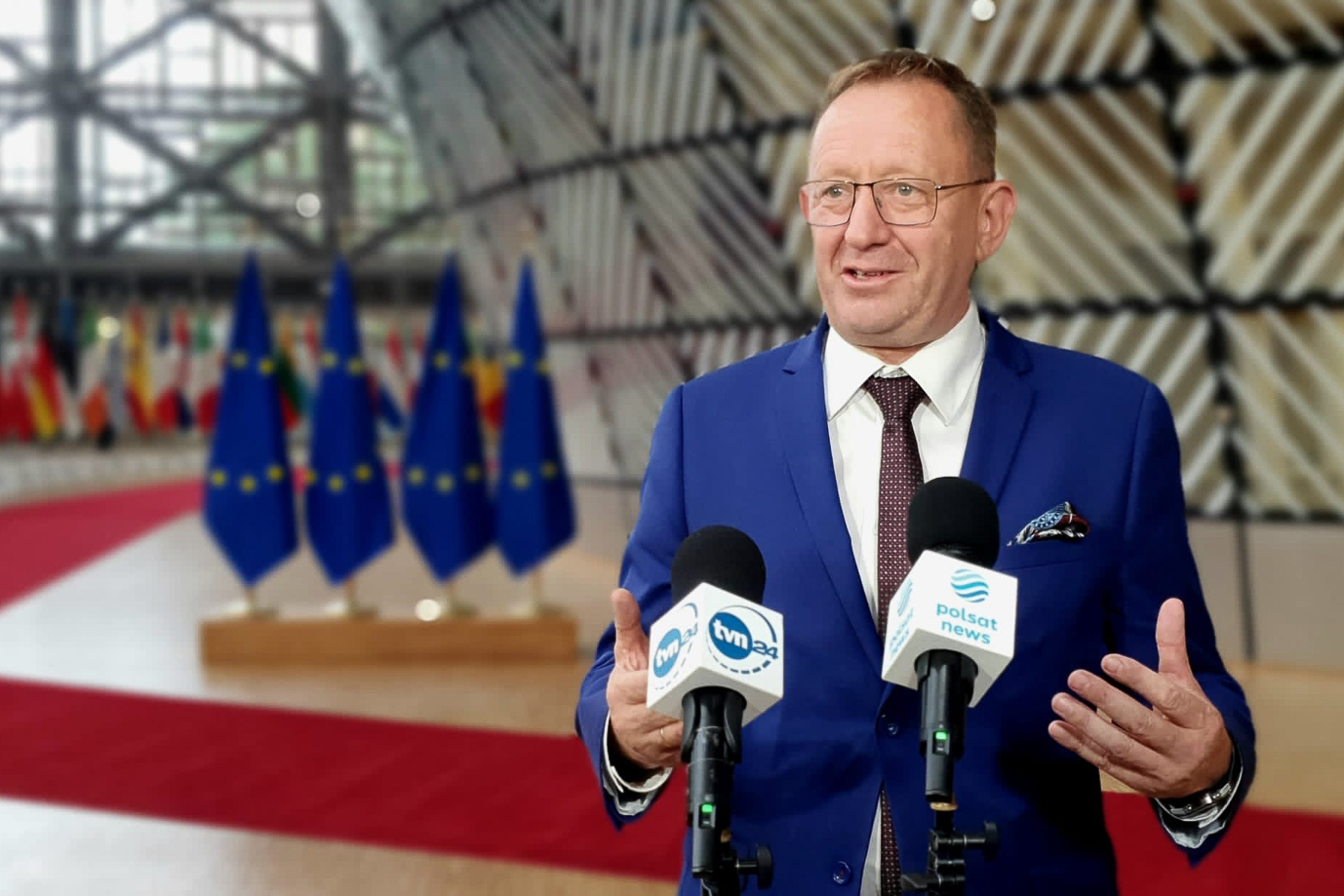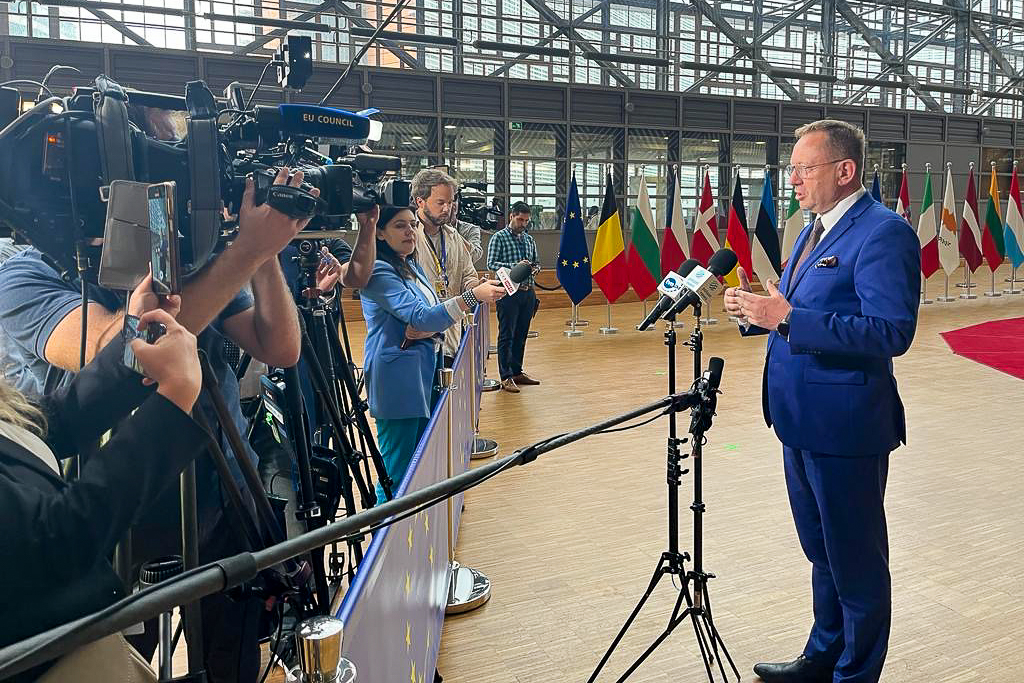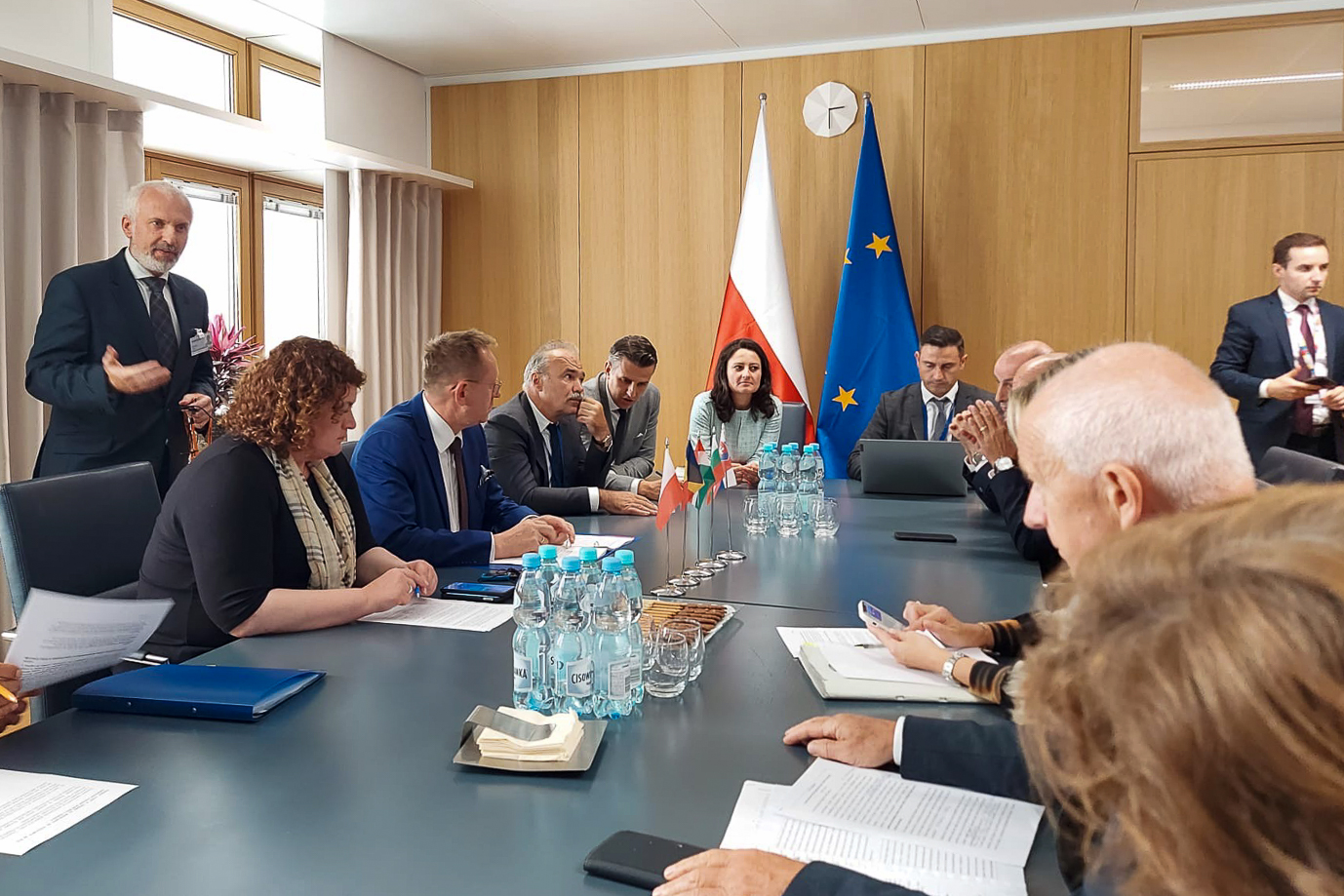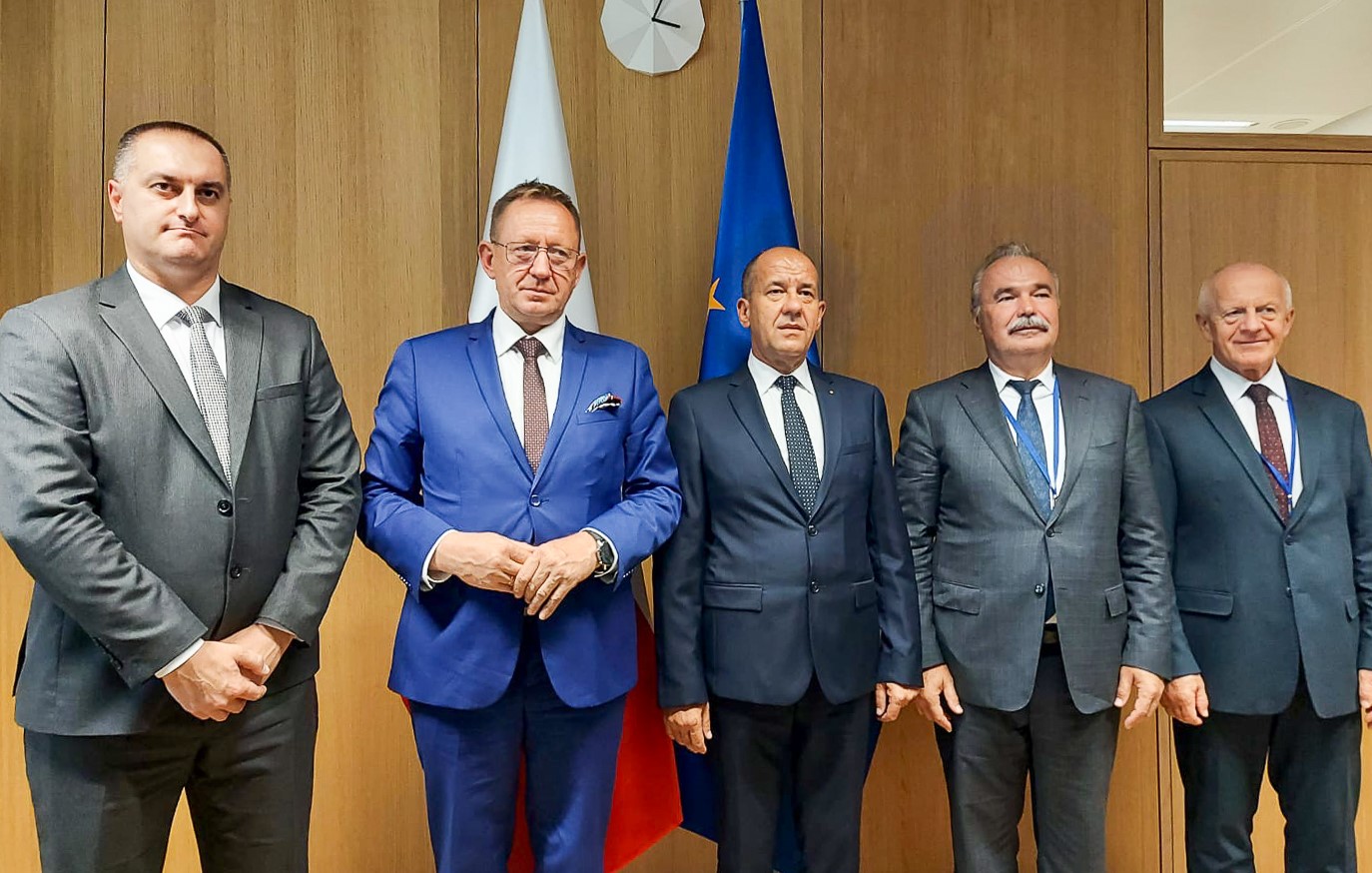The AGRIFISH Council in Brussels – Important topics for agriculture and fisheries
19.09.2023
Monday’s meeting of the EU Agriculture and Fisheries (AGRIFISH) Council in Brussels addressed important issues related to agriculture and fisheries. The Polish delegation was headed by Mr. Robert Telus, Minister of Agriculture and Rural Development.

Agriculture – The most important topics
The most important topics related to agriculture were the trade issues, the Directive on Soil Monitoring and Resilience and the long-term vision for the EU’s rural areas. During the session, Poland also provided information on the impact of the proposal for a Regulation on Nature Restoration on agriculture.
Trade-related agricultural issues
The Ministers exchanged views on trade-related agricultural issues, based on information provided by the European Commission.
The position of Poland
Mr. Robert Telus, Minister of Agriculture and Rural Development, started his statement by referring to the decision of the European Commission of 15 September 2023 providing for the expiry of a ban on the imports of selected agri-food products from Ukraine.
“This decision is disappointing and incomprehensible. It is not a substantive decision, but a political one. This decision was taken at the last possible moment and European farmers were kept in the dark until the last moment. I am sure that if the decision had been taken by the Ministers of Agriculture it would have been completely different,” the Polish Minister said.
Minister Robert Telus stressed that, on the one hand, the European Commission had discerned the improvement of the situation and the efforts of the frontline states to improve the transit of these products, but on the other, it had not extended the safeguard measures which had proved to be effective.
The head of the Polish delegation pointed out that the data spoke for themselves, as from February to June 2023 the cereal transit from Ukraine through Poland had more than doubled. It was 114, 000 tonnes in February, 120,000 tonnes in March and grew to 262,000 tonnes in June.
“Before the adoption of safeguard measures the average monthly transit through the solidarity lanes was 2.9 million tonnes, while after a ban had been imposed the average grew to about 3.4 million tonnes,” Minister Robert Telus added.
Minister Robert Telus recalled that Poland and other EU Member States bordering on Ukraine had presented many times their position that the safeguard measures should be extended until at least the end of this year, with the option of modifying their product range.
“We believe that the decision providing for the expiry of the safeguard measures threatened another crash in the cereal markets in our countries and in the EU, huge social tensions, problems with selling this year’s harvest and a shortage of space in storage facilities to keep the high national maize harvest,” the Polish Minister of Agriculture said.
Robert Telus clearly stressed that exactly for this reason the Government of the Republic of Poland had decided to maintain a ban on imports to Poland, with no obstacles to transit.
The head of the Polish delegation also informed that Poland now held talks with Lithuania in order to move controls to its ports and thus improve the transit further.
Minister Robert Telus stressed that at present the most important issue for Poland was to build effective mechanisms for the transit of Ukrainian products through the EU territory to third countries.
The Minister stated that long-term mechanisms were all the more necessary when consideration was given to the future membership of Ukraine in the European Union. He stressed that the potential accession of Ukraine to the European Union required its compliance with all the standards and regulations which applied to the Candidate States n the scope of the rules governing the EU agricultural production – the same rules that Poland and other countries had to meet when they acceded to the EU.
The Polish Minister of Agriculture clearly noted that Poland’s decision was not against either Ukraine or the EU. He said that he hoped for understanding on the part of Ukraine and EU partners of Poland’s actions and their solidarity.
The impact of the proposal for a Regulation on Nature Restoration on agriculture – Information from Poland
The topic was submitted for consideration during the session at Poland’s initiative. Mr. Robert Telus, Minister of Agriculture and Rural Development, pointed out that the issues of agriculture and food security had not always been considered in the work on the proposal for the Regulation, as the protection and restoration of natural resources had been treated as an overriding objective.
The head of the Polish Ministry of Agriculture stressed that the achievement of the objectives of the restoration of agricultural ecosystems, among other things, by re-wetting drained peatlands or enhancing landscape elements on agricultural land, would contribute to a reduction in agricultural production.
“In Poland, this could mean the exclusion of as much as about 700,000 hectares from agricultural production, representing more than 4% of arable land, and losses in the agricultural sector estimated at almost PLN 2.4 billion. This could lead to the liquidation of about 62,000 agricultural farms,” the Minister explained.
The head of the Ministry of Agriculture stressed that more of such restrictive regulations must not be imposed on farmers, especially given that even now the requirements of the new conditionality under the Strategic Plans meant the exclusion of 4% of arable land from production.
“The adoption of the proposed Regulation, along with the requirements of the conditionality, will lead to the situation where as much as 8% of agricultural land will be excluded from the agricultural production in Poland,” Minister Robert Telus added.
In the opinion of the Minister, the objectives of agricultural policy should primarily focus on encouraging farmers to pursue a rational economy and safeguard food security in the EU and globally.
The head of the Ministry of Agriculture called for consideration to be given to the care for European agriculture, especially in light of the current situation caused by the adverse impacts of natural disasters occurring in the EU, as well as by the war in Ukraine.
The Directive on Soil Monitoring and Resilience – The agricultural aspects
The Ministers discussed the agricultural aspects of the proposed Directive on Soil Monitoring and Resilience, based on information provided by the Commission.
The position of Poland
Mr. Robert Telus, Minister of Agriculture and Rural Development, stressed that the introduction of a unified system for assessing the soil condition was an important initiative, but its implementation would pose a few challenges.
In Poland’s opinion, the linkages between the proposed regulations and the present and future CAP are not clear. Therefore, the question arises as to whether it will be possible to support the sustainable soil management practices as part of voluntary CAP instruments or whether they will become part of mandatory requirements. Moreover, at its initial stage, the system should be based on incentives (financial ones, but not only), education and promotion of good practices. A good solution could be to let a Member State decide on the implementation of the soil certification system, depending of the analysis of its internal needs,” the Polish Minister of Agriculture informed.
The Minister stressed that, just as other Member States, Poland had for many years undertaken various initiatives intended to protect soils against degradation. He informed that the Polish Strategic Plan for the Common Agricultural Policy placed a large emphasis on the implementation of environmental and climatic objectives, including the improvement of the condition of soils.
A long-term vision for the development of the EU’s rural areas – The Communication from the EC
The Ministers of Agriculture discussed the challenges which the rural areas were currently facing, with consideration given to the Communication from the Commission “A long-term Vision for the EU's Rural Areas”.
The position of Poland
Mr. Robert Telus, Minister of Agriculture and Rural Development, stressed that only a full involvement of all the Member States of the European Union in the achievement of common objectives and their consistent actions could bring the desired effects. In particular, there is a need for actions to be designed and carried out in relation to the geopolitical context of the situation in rural areas, resulting from the COVID-19 pandemic, the Russian aggression in Ukraine and large social changes.
The head of the Polish delegation stressed that EU policies after 2027 should allocate to a greater extent than to date resources for the improvement of all the types of infrastructure in rural areas. It is also important to ensure a strong solidarity policy with a high budget, which will be used to support services for the rural residents, as well as the development of infrastructure and entrepreneurship.
“The accession to the EU of countries with a large production potential in this sector, such as Ukraine and Moldova, will be a challenge for European agriculture and agri-food processing,” the Polish Minister of Agriculture added.
Minister Robert Telus stressed that the main objectives of the Common Agricultural Policy after 2027 should be: safeguarding the food security of the EU Member States, building resilience to crises and ensuring the profitability of the operations of farms in the new conditions of an expanded EU. The head of the Ministry of Agriculture stated that a comprehensive approach to its financing was of key importance for rural development. He stressed the need for a holistic approach, linking different policies, social and investment support and actions at the EU, national and regional levels.
Fisheries
The EU Ministers exchanged views on the consultations on the fishing opportunities for 2024 which were held between the EU and third countries, i.e. the United Kingdom, Norway and coastal states.
The position of Poland
Referring to the consultation between the EU and the United Kingdom, Mr. Robert Telus, Minister of Agriculture and Rural Development, expressed his hopes that the intensive work would make it possible to continue fishing operations from January 2024. He stressed the need to commit to managing shared stocks on the basis of the best scientific advice available from the international Council for the Exploitation of the Sea (ICES) and taking into account the socioeconomic situation of the fisheries sector.
Concerning the EU negotiations with Norway, the head of the Ministry of Agriculture informed that for Poland it would be important to maintain access to the Norwegian waters for the purposes of fishing for Atlantic-Scandinavian herring. In the context of the EU cooperation with the coastal states, the Minister expressed his hopes for progress in the discussion on the new allocation of the TACs for herring, mackerel and blue whiting.
As part of the discussion on the amounts of the fishing quotas for herring, mackerel and blue whiting for 2024, Minister Robert Telus informed that Poland would advocate the establishment of the fishing quotas in accordance with the scientific advice for these stocks.
Meetings on the sidelines of the Council
On the sidelines of the Council meeting, the five frontline states, i.e. Poland, Bulgaria, Romania, Slovakia and Hungary, met to consider the lifting of the embargo on Ukrainian cereals.
Mr. Robert Telus, Minister of Agriculture and Rural Development, expressed his regrets that the EU had decided that the ban on cereal imports from Ukraine would not be extended, without taking substantive arguments into account. The Minister stressed that this was a solely political decision.
“I believe that, as the group of the five frontline states, we should monitor the situation together and seek good solutions safeguarding the future of European agriculture,“ the Polish Minister of Agriculture informed, summing up the talks of the states of the Five.
Bilateral meetings
Moreover, Mr. Robert Telus, Minister of Agriculture and Rural Development, held talks with Commissioner Wojciechowski on the current situation in agriculture.

